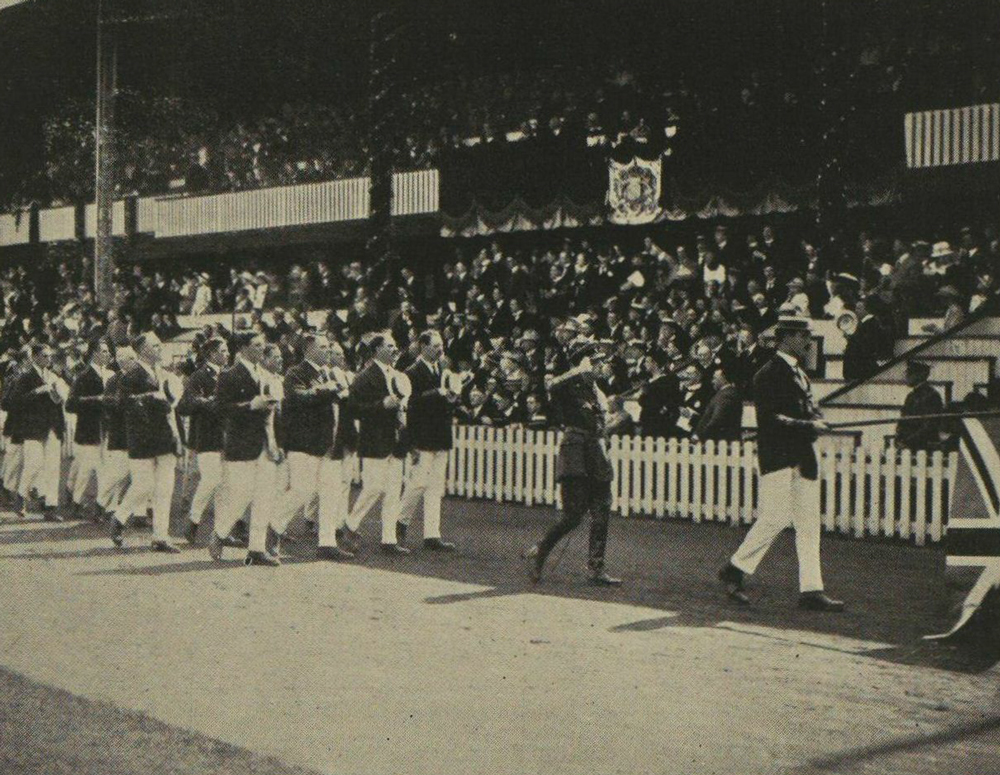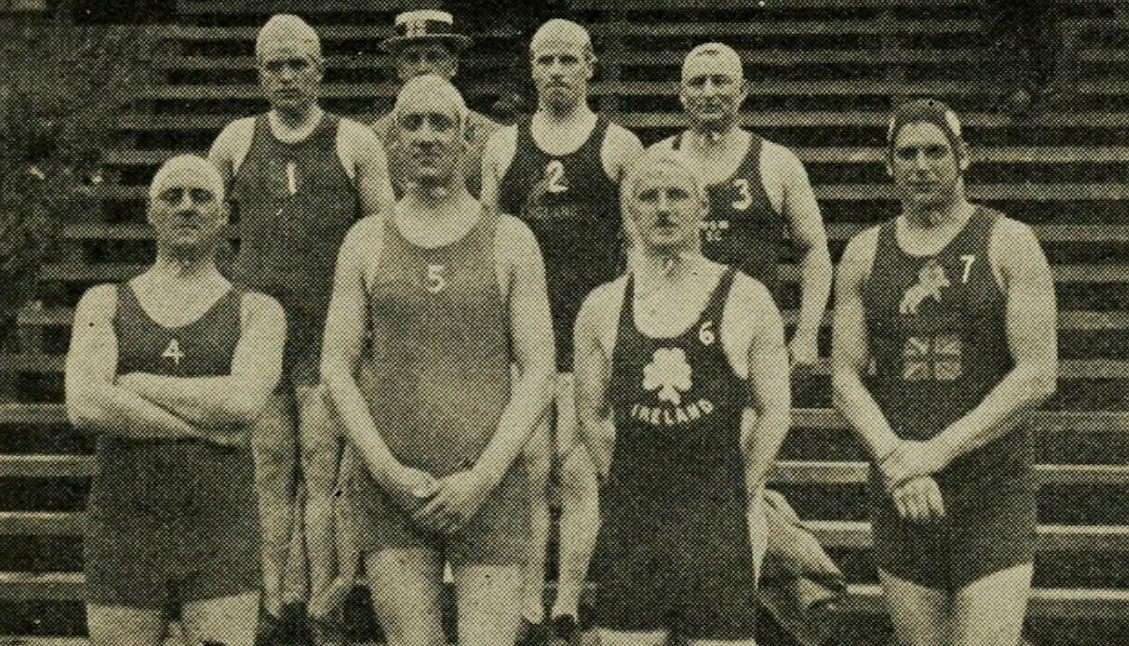British athletes face hostility at home and abroad
Antwerp, 27 August 1920 - The final of the men's water polo competition took place today between Great Britain and Belgium. The game was nail-biting with Great Britain scoring three minutes before the end to win the game 3-2.
The home crowd, disappointed with the result, booed and whistled at the referee. Then, when the band took up ‘God Save the King’ as is the custom, the crowd took this as a signal to renew their jeering, drowning out the sound of the British anthem. Immediately afterwards, the British team called a meeting of the delegates of all the nations represented at the games and vigorously protested the insult. It was decided that an apology would be printed in the programme for the following day’s events.

The British Olympic team during the opening ceremony (Image: Illustrated London News [London, England], 12 August 1920)
As well as facing hostility from the Belgian crowds, the British Olympic team have found themselves having to defend their very existence from critics at home.
The controversy began with a letter, published in the Times on 14 August, by Sir Theodore Cook, a former member of the British Olympic Committee, who represented Britain in the art category of this year’s games. Cook argued that the lukewarm reaction to the event in Britain was a testament to the fact that the games had ‘become entirely alien to English thought and character.’
He called on the British representatives to inform the president of the Olympic council that British athletes wouldn’t take part again until the prevailing attitude of the public changed.
The British team’s response, which appeared in the Times today said: ‘…these contests have without exception been run in a spirit of fairness and good sportsmanship which we believe to be equal to the highest standards of British tradition; so far from bad feeling being engendered, we have been witnesses of the most generous international camaraderie and good fellowship among the individual athletes and the teams that have competed.’
[Editor's note: This is an article from Century Ireland, a fortnightly online newspaper, written from the perspective of a journalist 100 years ago, based on news reports of the time.]





















